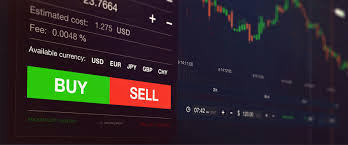
Mastering Forex Trading Practice: Strategies and Tips for Success
Forex trading can be an exciting and profitable endeavor for those willing to put in the time and effort to learn the ropes. Whether you’re a complete novice or an experienced trader looking to sharpen your skills, understanding the nuances of forex trading is essential. In this article, we will delve into various strategies, practical tips, and tools necessary for mastering forex trading practice. If you’re looking for a reputable trading platform, consider checking out forex trading practice Qatar Brokers, which could offer valuable insights and resources for aspiring traders.
What is Forex Trading?
Forex trading, short for foreign exchange trading, involves buying and selling currencies on the foreign exchange market. It is one of the largest financial markets globally, with trillions of dollars traded daily. Unlike stocks, forex trading does not involve ownership of an asset; instead, traders exchange one currency for another in hopes of making a profit based on fluctuations in exchange rates.
Understanding Currency Pairs
In forex trading, currencies are traded in pairs, such as EUR/USD or GBP/JPY. The first currency in the pair is known as the base currency, while the second is the quote currency. The exchange rate indicates how much of the quote currency is needed to purchase one unit of the base currency. Understanding how to read and interpret these pairs is crucial for making informed trading decisions.
Importance of Forex Trading Practice

Before diving headfirst into real trading, it’s vital to engage in forex trading practice. This allows you to familiarize yourself with the market dynamics and trading platforms without risking your capital. Practice accounts, often provided by brokers, give you the opportunity to trade with virtual money, enabling you to develop your strategy, test different techniques, and build confidence.
Key Strategies for Forex Trading Practice
1. Start with a Trading Plan
A well-structured trading plan is paramount for your success. It should outline your trading goals, risk tolerance, preferred trading style, and specific strategies you intend to use. A solid plan helps keep emotions in check and ensures that your trades align with your long-term objectives.
2. Employ Technical Analysis
Technical analysis involves the study of price charts and historical market data to predict future price movements. Familiarize yourself with chart patterns, indicators, and trends, which can aid in making informed trading decisions. Common technical indicators include moving averages, relative strength index (RSI), and Bollinger Bands.
3. Utilize Fundamental Analysis
Fundamental analysis focuses on economic indicators, news events, and geopolitical factors that can influence currency prices. Keep an eye on interest rate changes, employment reports, and economic growth data. Understanding how these factors impact the forex market allows you to anticipate price movements and trade accordingly.
4. Risk Management

One of the most crucial aspects of trading is managing your risk. Applying the right risk management techniques can protect your capital from significant losses. Set stop-loss orders to limit potential losses on trades, and never risk more than a small percentage of your trading capital on a single trade.
5. Review and Analyze Trades
After practicing with your trading strategy, it’s essential to review your trades regularly. Analyze what worked and what didn’t, and adjust your strategy accordingly. Keeping a trading journal can help you track your progress, pinpoint areas for improvement, and enhance your overall trading performance.
Tools and Resources for Forex Trading Practice
Leveraging the right tools can significantly improve your trading practice. Here are some essential resources you might consider:
- Demo Trading Platforms: Use brokers that offer demo accounts to practice your trading skills without the financial risk.
- Forex Simulators: Forex simulators replicate market conditions in real time, allowing you to practice your strategies effectively.
- Educational Resources: Explore online courses, webinars, and tutorials covering various aspects of forex trading to better your knowledge.
- Trading Communities: Join online forums and communities to connect with other traders, share insights, and gain knowledge from experienced professionals.
Conclusion
Forex trading practice is an indispensable part of becoming a successful trader. By developing a solid trading plan, employing various analysis techniques, managing risk effectively, and utilizing the right tools, you will significantly improve your chances of success in the forex market. Remember, mastering forex trading takes time, patience, and practice—so keep honing your skills and adapting your strategies as you continue your trading journey.
Always stay informed about market trends, economic news, and technological advancements in trading. The forex market is dynamic and ever-evolving, so continuous learning is key to staying ahead. Happy trading!

